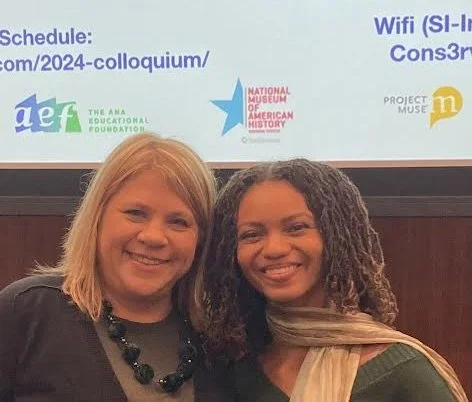Camilo Lab featured on KSMU, discussing policies to protect pollinators
Saint Louis University graduate student Paige Muñiz looks for bees at the International Institute of St. Louis' community garden on Folsom Avenue. Credit : Eli Chen | St. Louis Public Radio
Scientists who study pollinating bees and butterflies report that state laws across the U.S. aren’t doing enough to protect the very animals that help crops grow.
Insect pollinators contribute about $29 billion to the U.S. agriculture industry, according to a 2010 study from Cornell University. But many of these insect species are declining for a variety of reasons, including pesticide exposure and converting land for agriculture. The problem has been so serious that in 2014, former President Barack Obama issued a memorandum to protect honey bees.
Despite numerous public-awareness campaigns, there are few state-level policies that exist to protect pollinating species, according to a recent study from researchers at University of Missouri-Columbia and St. Louis University.
“These policies do represent early first steps,” said Damon Hall, a natural-resources professor at Mizzou. “They’re a little bit anemic to addressing something of the scale of a crisis.”
Hall and his colleague Rebecca Steiner at SLU found that since 2000, 36 states passed 109 laws that could help pollinators. Missouri passed just one in 2017 which stretched the definition of “livestock” to honey bees for sales-tax purposes. However, many of the laws nationally fell short of policy recommendations from biologists, Hall said.
“The [recommendation] of most concern is monitoring,” he said. “No state really had an aggressive plan to increase insect-monitoring programs. We need monitoring to understand whether our actions are improving these populations or not.”
The study did not consider proposed bills and programs from state agencies or the executive branch of state governments. The Missouri Department of Conservation has conserved more than 300,000 acres of pollinator habitat.
On the state level in Missouri, not much action has progressed beyond raising awareness, said Gerardo Camilo, a biologist at SLU who studies native bee habitats.
“It’s a patchwork of nothingness,” he said. “The state has recognized the importance of pollinators. The current policy isn’t the strongest. Revising the state wildlife action plan [is needed] in order to make it a much more comprehensive policy.”
Camilo hopes to see regulations that require developers to come up with a plan for protecting pollinators when developing property that also serves as habitat for native bees and monarch butterflies.









